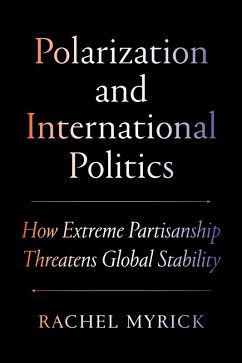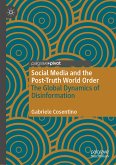How extreme polarization undermines the advantages that democracies have when formulating foreign policy Polarization is a defining feature of politics in the United States and many other democracies. Yet although there is much research focusing on the effects of polarization on domestic politics, little is known about how polarization influences international cooperation and conflict. Democracies are thought to have advantages over nondemocratic nations in international relations, including the ability to keep foreign policy stable across time, credibly signal information to adversaries, and maintain commitments to allies. Does domestic polarization affect these "democratic advantages"? In this timely book, Rachel Myrick argues that polarization reshapes the nature of constraints on democratic leaders, which in turn erodes the advantages democracies have in foreign affairs. Drawing on a range of evidence, including cross-national analyses, observational and experimental public opinion research, descriptive data on the behavior of politicians, and interviews with policymakers, Myrick develops metrics that explain the effect of extreme polarization on international politics and traces the pathways by which polarization undermines each of the democratic advantages. Turning to the case of contemporary US foreign policy, Myrick shows that as its political leaders become less responsive to the public and less accountable to political opposition, the United States loses both reliability as an ally and credibility as an adversary. Myrick's account links the effects of polarization on democratic governance to theories of international relations, integrating work across the fields of international relations, comparative politics, and American politics to explore how patterns of domestic polarization shape the international system.
Dieser Download kann aus rechtlichen Gründen nur mit Rechnungsadresse in A, D ausgeliefert werden.









